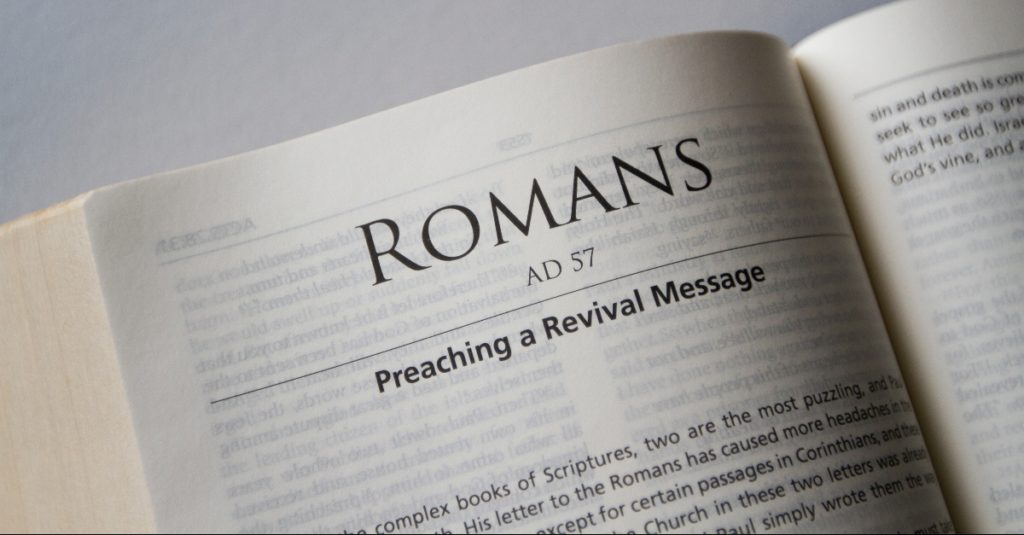The Power of the Sword
One of the age old questions that Romans 13 deals with is the Christian’s relationship to governing authorities. Romans 13:1-5 says, “Every person is to be in subjection to the governing authorities…if you do what is evil, be afraid for it does not bear the sword for nothing”. In Jesus’ day, none of the Jewish people thought they should have to pay taxes to Rome, yet Jesus said, “render to Caesar the things that are Caesar’s and to God the things that are God’s.” When Pilate told Jesus that he had the authority to execute Him, Jesus said, “you would have no authority over Me unless it had been granted you from above (by God)”. In the same way Romans 13:1 says, “there is no authority except that which God has established.” The governing authorities, whether we deem them good or bad, exist and rule under the authority of and at the pleasure of the Lord God Almighty, maker of heaven and earth. The theme therefore of Romans 13 is that Christians are to live in peace underneath whatever governing authority they find themselves. Christians are obligated to be the very best citizens possible. God has sovereignly appointed governments and given them the power of the sword to maintain order.
If you are like me, you have already been wondering what the loopholes are in this passage. Surely we are not expected to submit to evil tyrannical governments. Paul can not be telling us that we should obey madmen like Nero, Hitler, or Stalin !
I Agree With John Knox
The conflict in the sixteenth century between the Protestant reformer John Knox and Mary Queen of Scots, may give us valuable insight into this matter. John Knox was a disciple of John Calvin. He joined other Protestants in Scotland who were trying to forcefully establish Protestantism. He was captured by French Catholic forces in 1547 and spent 19 months as a galley slave. After his release, he studied in Geneva under Calvin from 1553 to 1559. He returned to Scotland in 1559 to help the Protestant cause and organized the Scottish Reformed Church.
Mary became the infant queen of Scotland in 1543, but lived in France until 1561 where she lived through a series of disastrous marriages, murder, and war. Mary, a Catholic, returned to Scotland to find a Protestant nation. She ordered them to return to the Roman Catholic Church. Not only did they decline, but they banned public mass. What followed in 1561 was an historic meeting and dialogue between an inept unknowledgeable monarch, and a devout biblically based follower of Christ.
The Argument Was Recorded for History
Queen Mary referred to Romans 13:1, and told Knox that he had no right to teach the people to receive a different religion than their queen should allow. She told him that God commands her subjects to obey her. The following is a slightly edited version:
KNOX: Madam, as the true religion took neither its origin nor its authority from worldly princes, but from the eternal God alone, so are not subjects bound to frame their religion according to the appetites of their princes. Princes are often the most ignorant of all others in God’s true religion. In the Bible, Daniel did pray publicly unto God against the command of the king, and so Madam you may perceive that subjects are not bound to the religion of their princes, although they are commanded to give them audience in other matters.
MARY: Think you that subjects may resist their princes?
KNOX: If their princes exceed their bounds, Madam, no doubt they may be resisted
What Happened to Mary Queen of Scots ?
Mary’s latest husband was murdered by her lover who then became her husband. The Scottish leaders rose up against her so she foolishly fled to her cousin, Queen Elizabeth of England who promptly imprisoned her for 18 years and then beheaded her.
So What Are the Loopholes ?
I think Paul and the other Apostles would have applauded John Knox’s reasoning. In the areas of civil and criminal laws, Romans 13 is telling us to obey our government and be good citizens. When it comes to God’s truth, He alone is our authority. In Acts 4, Peter and John had been arrested for preaching the Gospel of Jesus Christ. They were brought before the authorities and commanded “not to speak or teach at all in the name of Jesus. But Peter and John answered and said, ‘Whether it is right in the sight of God to give heed to you rather than to God, you be the judge, for we cannot stop speaking about what we have seen and heard”. In other words, when it comes to paying taxes, or which side of the road to drive the chariot, or what the speed limit is, we will obey the government; but when their commands try to overrule the Word of God, we will not obey.
CHARLIE TAYLOR

